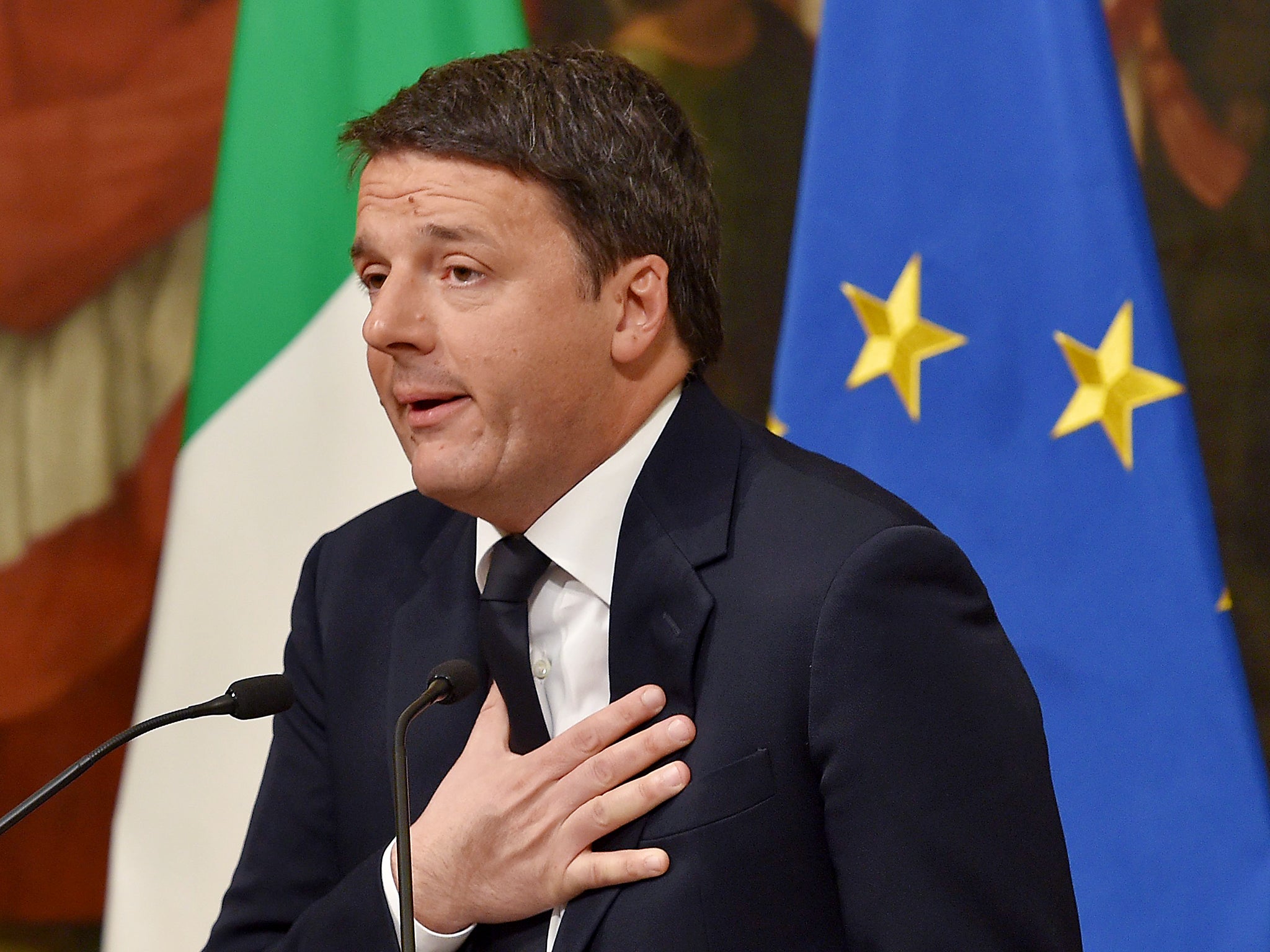Italy has avoided constitutional reform, but its banking sector is in dire need of one
Given the interconnections between Europe’s banks the Italian “contagion” could spread throughout the continent and wider

In Italy the ironies keep piling up as fast as the national debt. A constitutional referendum that was designed to give Italy stronger, more stable, government and a base from which to reform its economy has instead resulted in the resignation of the Prime Minister and pushed Italy’s banks another step towards going bust. The result is also another boost for the populist Five Star Movement, a strange amalgam of anti-globalist, Eurosceptic and green causes, led by a former comedian. That fact will do nothing for confidence in the banks, the nation’s public finances or improve its competitive position. This is, after all, a country that will be fortunate to stay solvent over the next year or two.
And yet Matteo Renzi's failed gamble brings another irony in its wake. The fact that Italy’s political structures will weaken any attempt at strong government has come as something of a relief to those, especially overseas investors, who fear the wrong kind of strong government – such as one led by Five Star, supported by the separatist Northern League. Better, the markets seem to be indicating, an Italy in its usual state of political paralysis and economic sclerosis than one that is heading out of the eurozone and the world economy.
Perhaps that is why the reaction of the markets has been relatively muted. Grateful for small mercies, they have observed the defeat of the far right Freedom Party in the Austrian presidential election, and events in Italy and concluded that things could be worse.
Even so, Italy’s financial system remains in a parlous state, undercapitalised and threatening both the savings of individuals and the capacity of the Italian Treasury to finance its activities. Given the interconnections between Europe’s banks, the Italian “contagion” could spread throughout the continent and wider. The wisest thing would be for Italy’s government – if and when it acquires one – to follow the example set in the UK, the US and other places during the last financial crisis, and to nationalise its banks, with the funding for that exercise coming from the wealthier parts of the European Union. A bailout overseen by the EU and the European Central Bank requires Brussels to relax some of its strictures on state aid, and, more challenging, for the German taxpayer to be willing to become the unwilling indirect owner of a collection of unhealthy Italian banks with little-but-bad loans on their books. That may be asking too much even of the ever-patient Angela Merkel and her compatriots.
The alternatives for Italy are bleak. Oddly, the Five Star Movement’s wish for Italy to leave the single currency, while enormously destabilising, would be in the Italian people’s best interests. It would allow for a devaluation of a new Italian currency, and, with some debt forgiveness and assistance from her European partners, offer the country the chance to become internationally competitive once more, if at the expense of some extra inflation. As we have witnessed in Greece, the option of “internal devaluation” – prices forced lower by unremitting austerity – is a much more difficult policy to make succeed. Besides, Italy, unlike Greece, is probably just too big to save and retain in the single currency, and certainly if Germany decides it has had enough. That said, Five Star is not going to make Italy great again.
The disintegration of Italy represents an even greater threat to the progress of the European project than Brexit. Let alone the EU, the unity of Italy itself is increasingly in jeopardy as the prosperous north seeks to disengage itself from the social and industrial problems of the south. Farewell Risorgimento. Whenever the general election comes, the hopes for Italy’s established political parties, even including Silvio Berlusconi's relatively youthful, though splintered, Forza Italia vehicle, are as poor as they can be.
Behind all of this – in Italy and Austria as in Britain and America – is a reality of voters wanting to run away from pressing economic realities, raising scapegoats such as globalisation, the EU or immigrants, raging against world economic forces they and their governments have proved powerless to tame. Few politicians seem to want to make the case for globalisation or to frame the policies that can make economic efficiency and social justice compatible with one another. Perhaps they are not, in the end, or perhaps the trade-offs are just becoming too painful to bear. Still, it is striking how few mainstream politicians seem to be even trying to make globalisation work and argue for freedom of movement of workers, capital and goods. Thus, it is indeed the failure of mainstream political parties and their leaderships to rise to the challenge that has created the powerful vacuum into which the populists, usually of the radical right but sometimes of the left too, have been able to take control. Despite the scant bits of good news that may be gleaned from the polls in Austria and Italy, next year will be another difficult one for the European Union.
Join our commenting forum
Join thought-provoking conversations, follow other Independent readers and see their replies
Comments
Bookmark popover
Removed from bookmarks